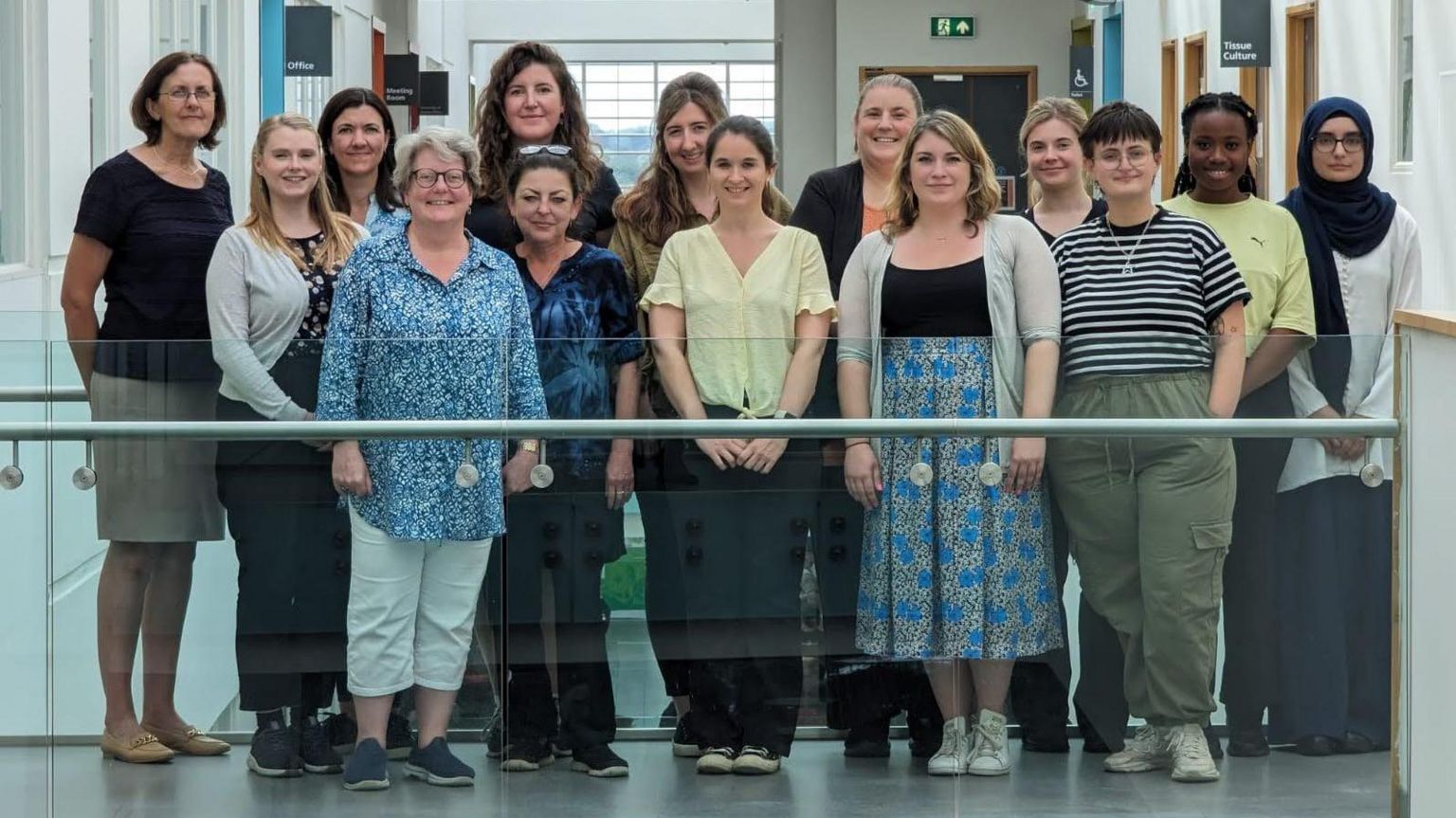New type 1 diabetes screening to help thousands

The team will be sending testing kits out to thousands of people
At a glance
A team of researchers are running a screening of 20,000 adults for type 1 diabetes
Blood tests will identify those likely to develop the condition and provide earlier, safer diagnoses
Adults between 18 and 70 without type 1 diabetes are eligible to take part
- Published
A new study is to screen 20,000 UK adults aged 17 to 70 for type 1 diabetes.
The goal of the project is to identify those who are at high risk of developing the condition and offer them education, support and access to new treatments.
Prof Kathleen Gillespie is leading the team from the University of Bristol, which is sending out the testing kits.
They contain a finger-prick blood test which will help researchers identify who is most at risk.
Type 1 diabetes is a lifelong autoimmune condition which experts believe affects about 400,000 people in the UK.
It causes the immune system to destroy cells in the pancreas which produce a hormone called insulin.
This means that the person can no longer produce their own insulin and their blood sugar levels become dangerously high.
'Huge shock'
Erika Jarvis, 86, from Bristol, was diagnosed as diabetic aged 32, just after having her baby daughter.
"I'd just been through a very long and traumatic birth... it was a huge shock and something that took me quite a while to get my head around," she said.
Prof Kathleen Gillespie is leading the project which began on 14 November
The project has been named Type 1 Diabetes Risk in Adults (T1DRA), and follows from the 'ELSA' screening programme for children, making the UK the first country to offer diabetes testing on this level.
The new tests can identify who is at risk by showing the level of proteins which mistakenly mark insulin cells for destruction.
From there, those who show these signs can be contacted by the research team and offered help.
Prof Gillespie said: "The research will help us get a much clearer idea of adults at risk... and offer participants the opportunity to participate in clinical trials to prevent the condition."